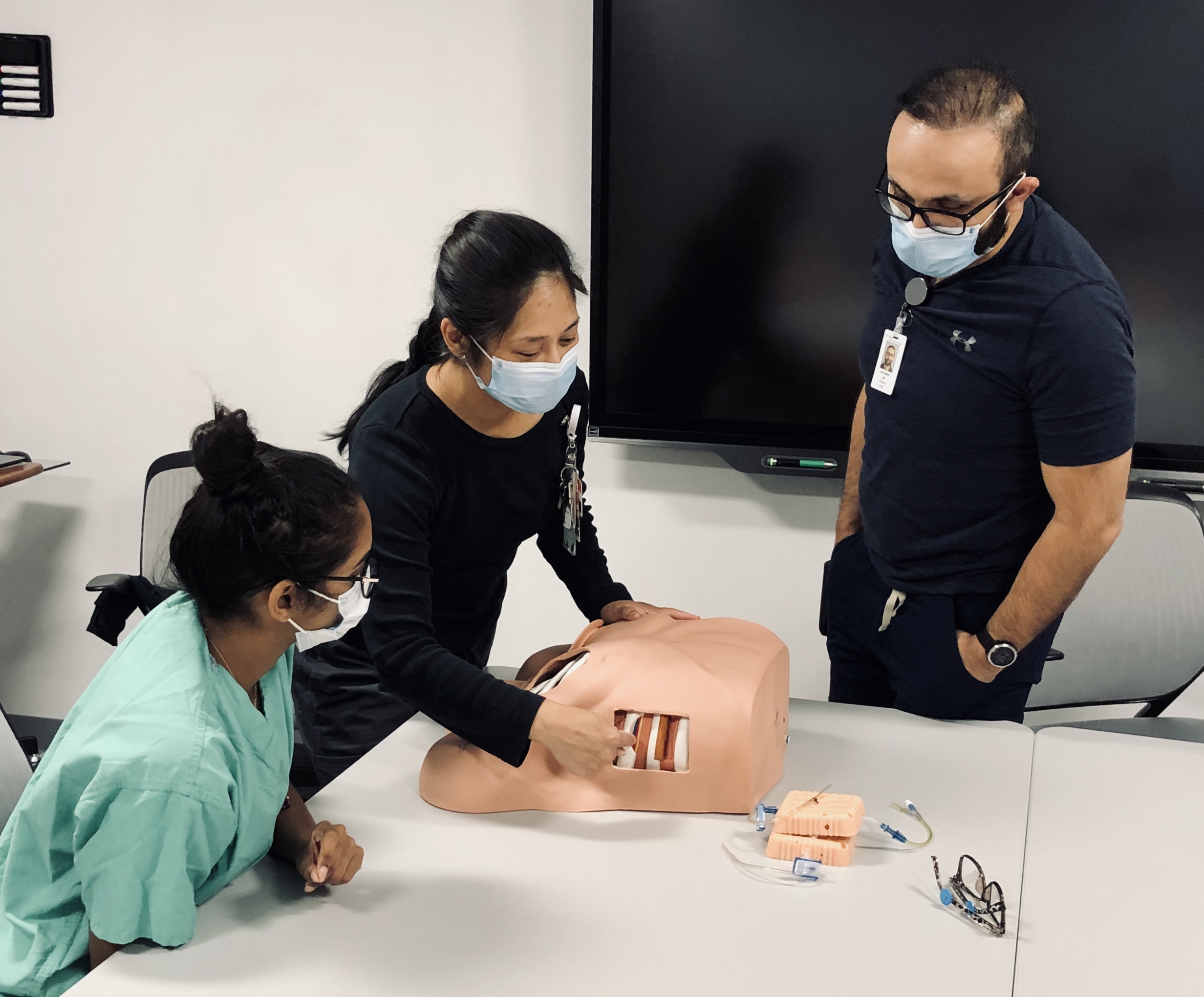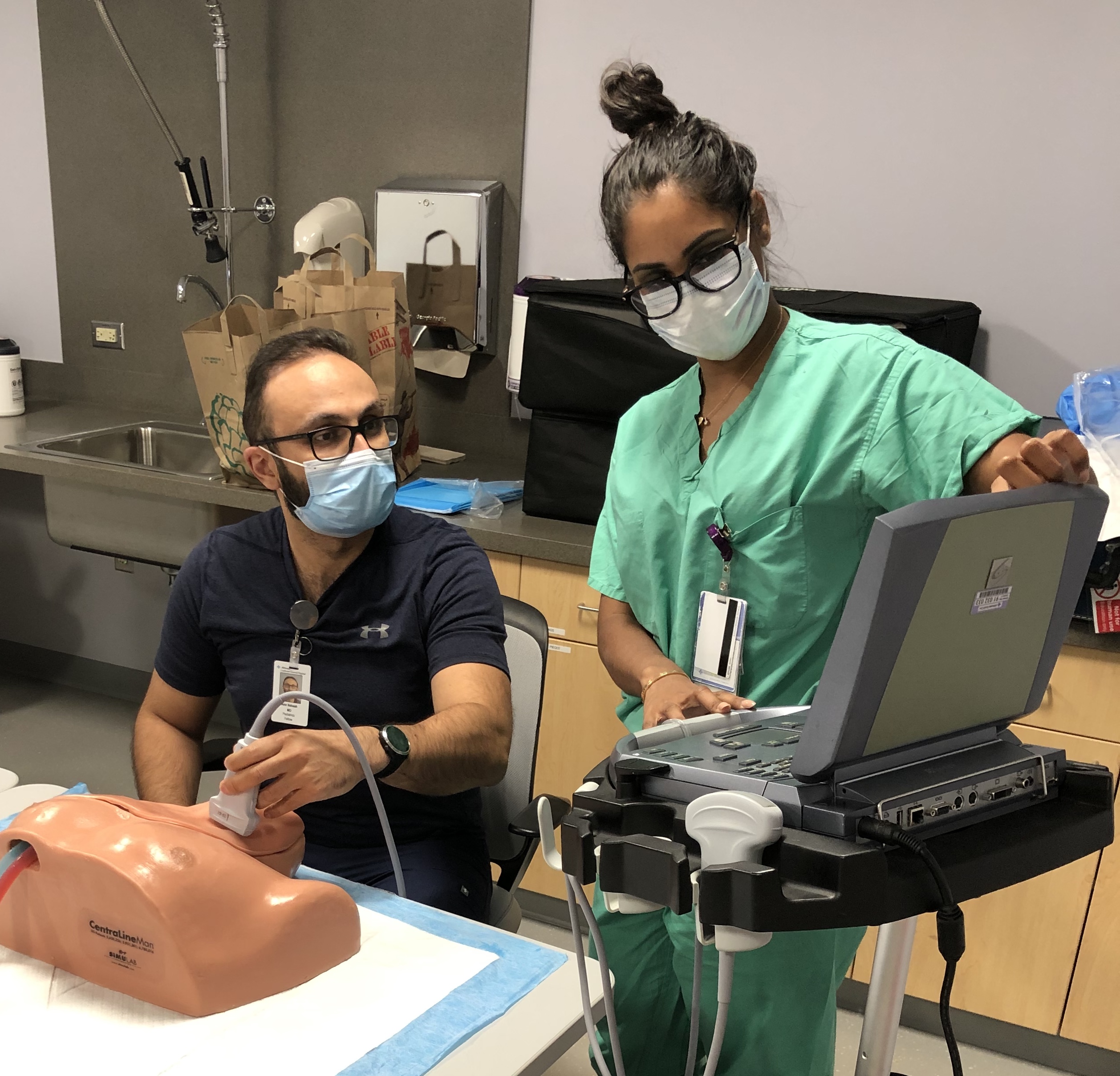Education program
Mission statement:
We strive to train self-motivated individuals to provide exemplary, evidence-based, and compassionate pediatric critical care, who are able to flourish in any setting, from academic centers to community-based practices. Leveraging our unparalleled faculty:trainee ratio, we aim to train our fellows in a tailored manner that embraces the individual’s personal learning style.
Education program
Clinical components
During the first year, the fellow is expected to acquire working knowledge of the basic physiology and pathophysiology of common Pediatric ICU diagnosis, and become proficient in the management of mechanical ventilation as well as the following procedures:

- Airway management (bag-mask ventilation, endotracheal intubation and extubation)
- Central line placement (femoral, subclavian, and jugular)
- Arterial line placement(peripheral and central)
- Dialysis catheter placement
- Chest tube placement
- Thoracentesis and paracentesis
- External cardiac pacing
During the second year, the fellow is expected to develop expert-level understanding of the common PICU pathology and the skills to analyze the basic pathophysiological mechanisms of less-commonly seen conditions. In addition to the previously-mastered procedures, the fellow is expected to acquire skills in the following:
- Pericardiocentesis and pericardial drain placement
- Management of the difficult airway, including video laryngoscopy, fiber optic techniques, and cricothyroidotomy
- High-Frequency Oscillatory Ventilation and other advanced ventilatory modes, such as APRV and NAVA
- Renal replacement therapy (CRRT, hemodialysis, peritoneal dialysis)
- Extracorporeal membrane oxygenation
- Use of inhaled gases, including HeliOx and Nitric Oxide
During the third year, the fellow is expected to increase their knowledge of recent advances in critical care at a physiologic and basic science level, and have a strong database of the fundamentals of pediatric critical care medicine. In addition, they should have attending-level competency in all the mentioned procedures. During the third year, we expect fellows to function as an attending in our unit.
Research goals
Please see linked document for full details, in brief:
First year:
- Complete research ethics training certification
- Select research project, identify a research mentor, and review and summarize pertinent literature
- Prepare a research proposal
- Submit the proposal to the Institutional Review Board or animal-care committee for approval
- Seek out funding opportunities
- Initiate study enrollment and/or data collection
Second year:
- Secure funding for project
- Bulk of research project (recruitment and/or basic science laboratory experiments, data collection and data entry)
- Start the research manuscript
- Continue to build a fund of research knowledge (ethics, statistics, etc.)
Third year:
- Complete the manuscript
- Submit the manuscript to peer-reviewed journals
- Revise the manuscript in accordance to the reviewers' comments and submit for publication
The research progress of the fellows is monitored and reviewed by a Scholarship Oversight Committee per ACGME requirements.
Educational components of fellowship
Didactic components of the program include:
- Pediatric Critical Care Medicine physiology lecture series
- Pediatric Critical Care Medicine Journal club
- Pediatric Intensive Care Unit Morbidity and Mortality conferences
- Weekly case conferences
- Ultrasound Imaging lecture series
- Board Review lecture series
- Monthly GME Research lecture series
- Visiting-professor lecture series in Pediatric Critical Care Medicine
- Week-long SCCM-based Pediatric Critical Care Medicine board review course every other year
- Regional Pediatric Critical Care Medicine boot camps during the 1st year and 3rd year
Various additional research and educational opportunities are provided by Advocate Lutheran General Hospital and other Advocate Health Care sites. The fellows have 5 days per year of approved CME time and are expected to attend and present their research at one national meeting during their fellowship.


Evaluation
The fellows overall progress is reviewed twice per year by the Clinical Competency Committee. Fellows research progress is also reviewed twice per year by the Scholarship Oversight Committee. Both committees must approve the fellow for advancement to the next phase of training.
In addition, fellows are evaluated by the supervising attending physician at the end of each week of each clinical rotation, by the mentors of their research and quality improvement projects at the end of each research rotation, and semi-annually by program leadership. These evaluations are reviewed with the individual fellows. Critical care nursing, ancillary professionals, and parents also participate in fellow evaluations.
